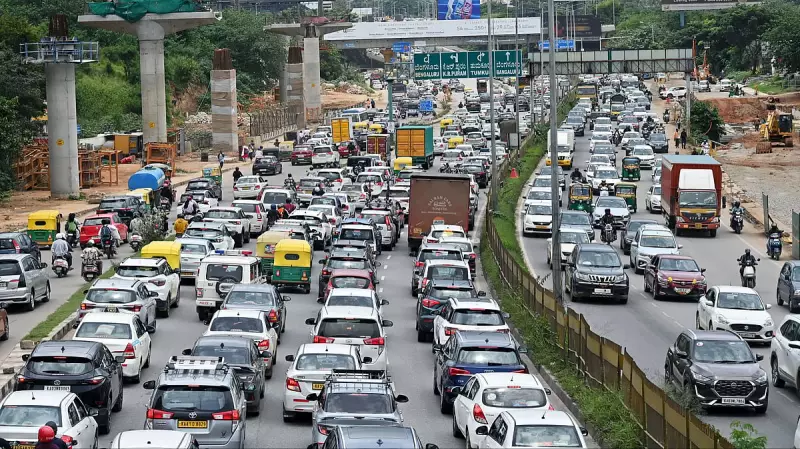
A viral social media post has ignited a fierce debate about Bengaluru's crumbling infrastructure and the role of uncontrolled migration in the city's growing pains. The post, which has captured widespread attention across platforms, questions whether the Silicon Valley of India is paying the price for its rapid population boom.
The Post That Started It All
The controversial post highlights the stark contrast between Bengaluru's world-class IT industry and its struggling basic infrastructure. It specifically points to the city's notorious traffic congestion, water scarcity issues, and overburdened public services as symptoms of a larger urban planning crisis.
Infrastructure Under Pressure
Bengaluru's infrastructure has been showing signs of severe strain in recent years. The city's roads, designed for a much smaller population, now witness daily gridlocks that cost commuters hours of productivity. The public transport system, while expanding, struggles to keep pace with the growing demand.
Water resources have become another flashpoint, with seasonal shortages affecting both new and established neighborhoods. The post argues that these issues are directly linked to the city's rapid population growth driven by migration from other states.
Divided Opinions Emerge
The viral post has triggered polarized responses from netizens. Some echo the concerns, arguing that Bengaluru's charm is being eroded by uncontrolled development and population pressure. Others counter that migration has been the lifeblood of Bengaluru's economic success and cultural diversity.
Supporters of the post's viewpoint emphasize that planned urban development cannot keep up with the current pace of migration. They call for better regulation and infrastructure planning to manage growth sustainably.
Opponents argue that blaming migrants oversimplifies complex urban challenges. They point to governance issues, inadequate planning, and implementation delays as the real culprits behind infrastructure gaps.
The Bigger Picture: Urban Planning Crisis
Urban experts suggest the debate highlights deeper issues in city governance and planning. Bengaluru's transformation from a pensioner's paradise to a metropolitan giant has been rapid, but systematic urban planning has failed to match this pace.
The city faces the classic challenges of rapid urbanization: inadequate public transport, housing shortages, environmental concerns, and resource allocation problems. These issues affect both long-time residents and newcomers alike.
Looking Forward
As the discussion continues to gain momentum, it's clear that Bengaluru stands at a crossroads. The city must balance its role as an economic powerhouse with sustainable urban development. The solutions likely lie in comprehensive planning, efficient governance, and inclusive policies that acknowledge both the contributions and challenges of migration.
The viral post has succeeded in starting an important conversation about Bengaluru's future – one that could shape how Indian cities manage growth in the years to come.





